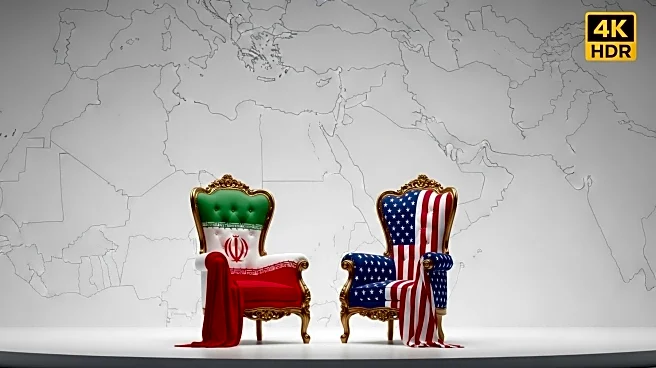What is the story about?
What's Happening?
Iran has announced that neither President Masoud Pezeshkian nor Foreign Minister Abbas Araghchi will attend the Gaza peace summit in Egypt, co-chaired by U.S. President Donald Trump. Araghchi cited U.S. aggression and sanctions against Iran as reasons for their absence. The summit aims to address the ongoing conflict in Gaza and establish a framework for peace in the Middle East. Iran's decision not to participate underscores its strained relations with the United States and its refusal to engage in diplomatic efforts led by Washington.
Why It's Important?
Iran's absence from the summit is significant as it removes a key regional player from discussions aimed at shaping the future of Gaza and regional stability. The boycott reflects Iran's deep mistrust of the U.S., exacerbated by years of sanctions and military confrontations. This decision may hinder efforts to build a consensus for peace in the Middle East, as Iran's support for the Palestinian cause is a cornerstone of its foreign policy. The summit's success could be compromised without Iran's involvement, affecting regional security and diplomatic relations.
What's Next?
The summit, co-chaired by President Trump and Egyptian President Abdel Fattah el-Sisi, seeks to end the war in Gaza and enhance regional stability. Leaders from over 20 nations are expected to attend, but Iran's absence highlights the challenges in achieving a comprehensive peace agreement. The future of Gaza and the broader Middle East peace process remains uncertain, with deep-seated rivalries and complex alliances complicating diplomatic efforts. Iran's decision not to attend may influence other regional players and impact the summit's outcomes.
Beyond the Headlines
Tehran's decision to skip the summit has exposed divisions within Iran's political establishment. While the choice aligns with Supreme Leader Ali Khamenei's hard-line stance, moderates and reformists have expressed disappointment, viewing it as a missed diplomatic opportunity. This internal debate reflects broader tensions within Iran regarding its foreign policy approach and engagement with the international community.

















